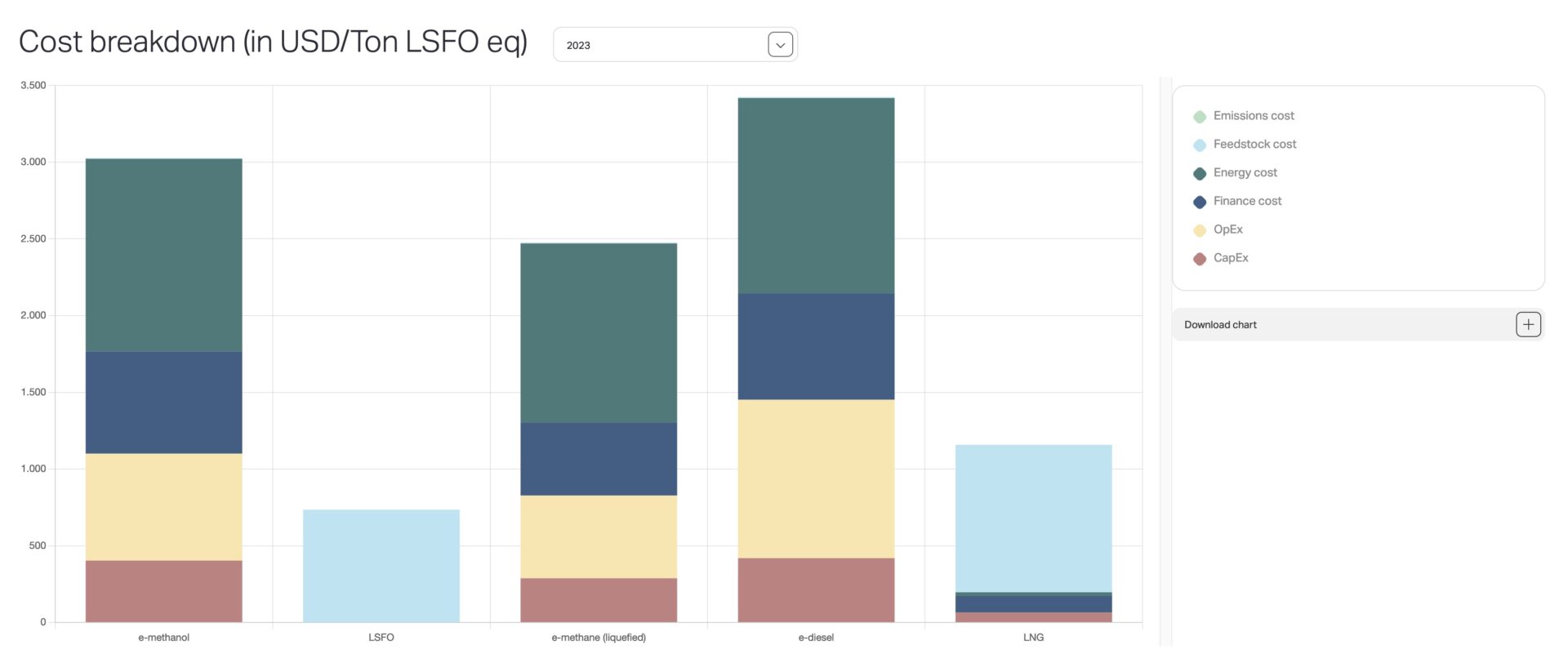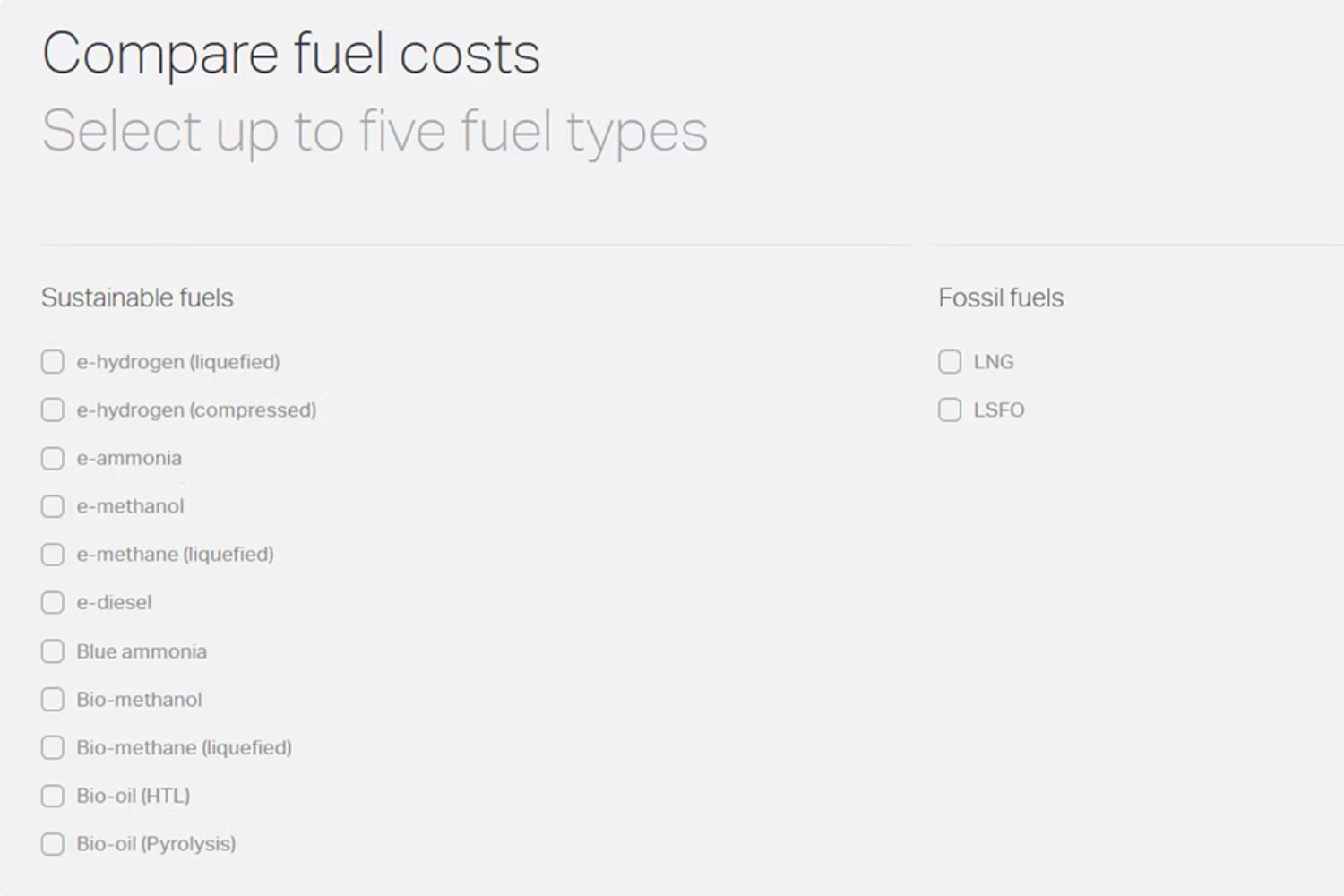With the new “Fuel Cost Calculator” tool, the Maersk Mc-Kinney Møller Centre for Zero Carbon Shipping aims to make the production costs of sustainable fuels comparable with those of fossil fuels.
One of the biggest challenges facing the maritime industry is the lack of reliable third-party estimates of fuel costs, according to a report recently published by the World Economic Forum and BCG. “With the Fuel Cost Calculator, we address this problem by providing transparent predictions of regional fuel production costs. All Fuel Cost Calculator calculations are based on a set of assumptions made by the Mærsk Mc-Kinney Møller Centre for Zero Carbon Shipping, derived from a mix of public literature, extensive industry knowledge and expert insight,” says Torben Nørgaard, CTO – Head of Energy & Fuels at the Mærsk Mc-Kinney Møller Center for Zero Carbon Shipping. [ds_preview]
The tool, which is available free of charge on the MMMC website, is designed to enable users to calculate the production costs of sustainable maritime fuels and compare them with those of fossil fuels. The Fuel Cost Calculator is designed to provide credible third-party cost estimates that enable fuel producers, financiers and buyers to evaluate fuel options on a comparable basis.
On the alternative fuel side, choices include liquefied or compressed e-hydrogen, e-ammonia, e-methanol, liquefied e-methane, e-diesel, “blue” ammonia, biomethanol, liquefied biomethane and bio-oil (HTL or pyrolysis). The result of the calculation is an overview of the cost composition of emission costs, energy costs, financial costs, opex, capex and feedstock costs. The costs for the fossil fuels used for comparison (LSFO and LNG) are based on market price forecasts and not on bottom-up calculations. The cost forecasts for sustainable fuels are not price forecasts and the availability of sustainable fuels is not taken into account in the calculations.

Fuel Cost Calculator is intended to promote “knowledge-based dialogue”
“We want everyone to understand what contributes to the cost of producing green fuels and we welcome dialog about our assumptions. We want the entire ecosystem to have an insight-based dialogue about realistic estimates of green fuel production costs. Therefore, we encourage you to try out our new tool,” says Torben Nørgaard, CTO and Head of Energy and Fuels at Mærsk Mc-Kinney Møller Centre for Zero Carbon Shipping.
The launch of the fuel cost calculator is an important strategic step towards transparency, says Bo Cerup-Simonsen, CEO of Mærsk Mc-Kinney Møller Centre for Zero Carbon Shipping: “The Centre was established in 2020, and from the beginning, we have openly shared our research and knowledge to inform and inspire the transition. Now we’re taking that to the next level. With the fuel cost calculator, we are opening up our toolbox and assumptions so that others can use and develop our findings.”













